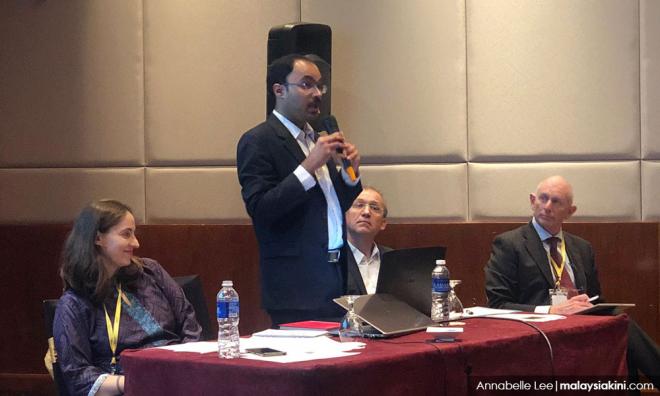
The value of our votes will become even more unequal with the introduction of 18-year-old voters and automatic voter registration, cautioned an activist.
Speaking at an electoral reform workshop in Kuala Lumpur today, Tindak Malaysia member Danesh Prakash Chacko (photo) observed that there was already serious malapportionment between states.
Malapportionment refers to an unequal number of voters between seats. This results in unequal vote values where ballots from larger seats carry less weight than those from smaller seats.
For example, Danesh calculated that the average constituency size in Selangor was about 110,000 voters while in Pahang it was about 58,000. This meant that on average, one vote in Pahang was worth almost twice as much as a vote in Selangor.
Earlier this year, the Parliament passed constitutional amendments to lower the voting age to 18 and allow automatic voter registration. This is expected to add some 7.5 million voters to the electoral roll come the next general election.
In light of this, Danesh estimated that the expansion of voter base would be most pronounced in the more developed states, especially Selangor.
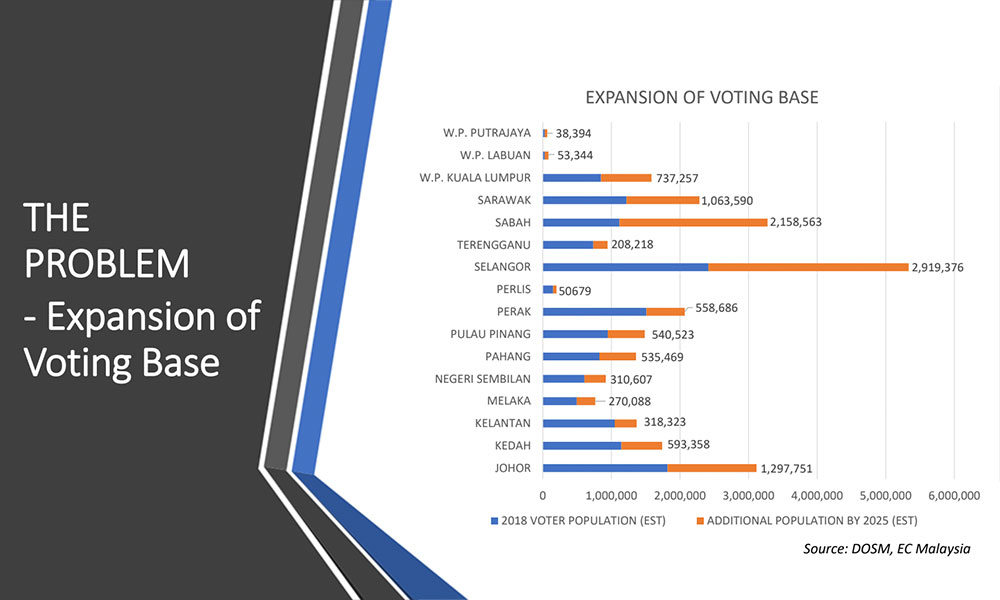
He thus expected interstate malapportionment to get worse. Using the present electoral map system, he projected that the average constituency size in Selangor would grow to more than 240,000 come 2025. The average constituency size in Pahang would also increase but at lower quantum to 96,000.
On average, the value of one vote in Pahang would become almost 2.5 times more than the value of a vote in Selangor.
“Something has to be done, we can’t just live as it is and do nothing," he said.
“It will be a disservice to our MPs and, more importantly, to all our new voters to come, be it 18 to 21-year-olds or (the others),” he said.
Danesh presented his findings at the “Mixed Member Proportional and Constituency Delimitation: Experiences of Germany and New Zealand for Malaysia’s Reference” workshop in Kuala Lumpur today.
He proposed three ways to address the looming “voter tsunami”, all of which would require tweaking the present First-Past-The-Post electoral system and constitutional amendments.
The spatial scientist’s first idea was to “equalise” the disparity between states as much as possible by adding seats to allow more equitable representation, especially in Selangor. He estimated that the Dewan Rakyat would grow to have 334 seats from the present 222.
However, he underscored how this method could result in the “perpetual” need to add more seats as the electoral roll grows.
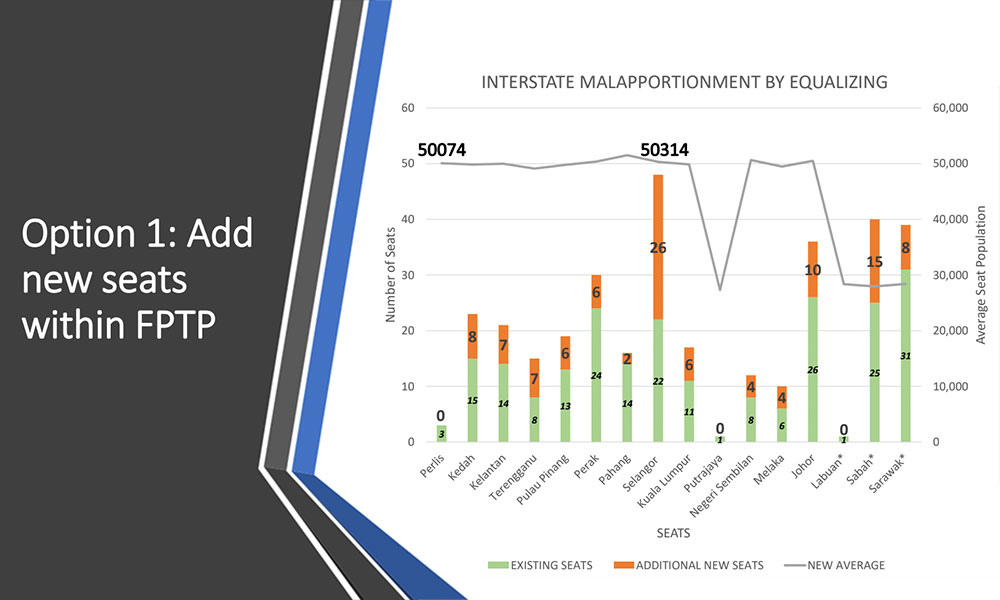
The second solution was to change from having single-member constituencies (one MP per seat) to multi-member constituencies; creating a mixed-member proportional (MMP) electoral system.
This means voters will be able to cast two ballots, one to choose an individual MP representing their constituency and one to choose a party, like in Germany and New Zealand.
The total vote share won by each party will determine how many additional representatives it can choose from its list. This, he calculated, would result in a 431-seat Dewan Rakyat.
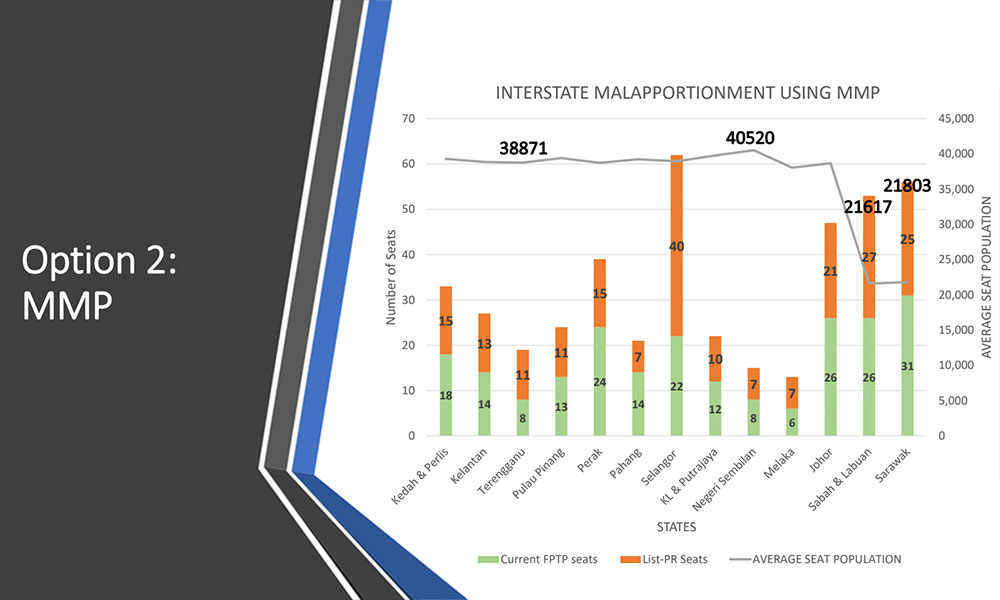
Danesh’s third proposal was a modification of the MMP, allowing fewer MPs to be chosen from a list. He estimated this to result in a 333-seat Dewan Rakyat.
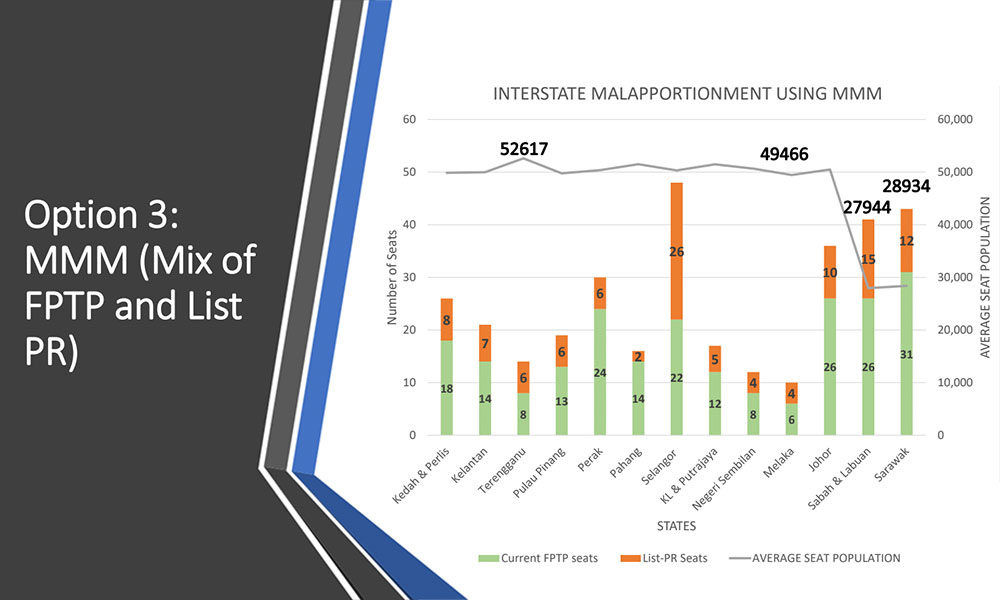
Aside from Danesh, German professor Thomas Gschwend from the University of Mannheim and former New Zealand Electoral Commission chief electoral officer Robert Peden also gave presentations.
Among the attendees were EC commissioners Faisal S Hazis and Zoe Randhawa; Subang MP Wong Chen; Bersatu supreme council member Wan Saiful Wan Jan, and staff from the Dewan Rakyat Speaker’s office.
The workshop was jointly organised by NGOs Engage and Bersih together with the government’s Electoral Reform Committee. - Mkini


No comments:
Post a Comment
Note: Only a member of this blog may post a comment.